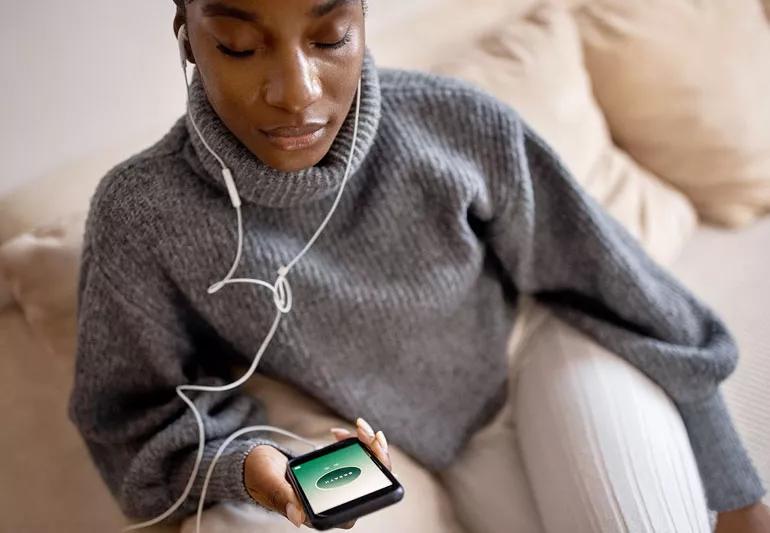Take control of panic and anxiety with these calming tips

A racing heart. Sweating. Dizziness. Trouble breathing. A panic attack can be overwhelming, and it can feel like you’re powerless to stop it.
Advertisement
Cleveland Clinic is a non-profit academic medical center. Advertising on our site helps support our mission. We do not endorse non-Cleveland Clinic products or services. Policy
But you can learn to control or even stop panic attacks. Clinical psychologist Regina Josell, PsyD, outlines three steps you can take to bring yourself back to calm sooner.
There’s no magic cure-all for panic attacks, but you can make them shorter and less severe. The next time you’re dealing with a panic attack, follow these steps:
A panic attack can fill your head with racing, negative thoughts, which can keep the panic going and make you feel worse. But you can wield a powerful weapon against them: A script of positive thoughts.
“Write down encouraging words you can read to yourself during a panic attack,” Dr. Josell says. “Your script should answer the negative thoughts. So if you feel like you’re going to pass out, tell yourself you won’t. If you feel like you’re dying, tell yourself you won’t die from a panic attack. The words you hear are powerful, and over time, they become your truth.”
Ideally, write your script when you’re feeling calm. Tuck it in your pocket or purse or type it into your smartphone notes so it’s easy to access.
If you’re in the middle of a panic attack and don’t have your script, you can fight negative thoughts on the fly. Try repeating — in your mind or out loud — phrases like, “I’m strong, and I can handle this,” or “This is only temporary, and it will pass.”
Advertisement
Your script helps you deal with an attack that arises, but it’s a preventive measure, too. It can calm your fear of having another panic attack because you know you’re in control. The more confident you are that you can manage a panic attack, the less likely you are to have future attacks.
Your breath affects your mental state, so breathing is a crucial part of stopping a panic attack.
“During a panic attack, your breathing speeds up, a signal that your body is in fight-or-flight mode,” Dr. Josell says. “Rapid breathing sends a clear signal that you’re in danger, but slow, deep breathing helps to turn off the fight-or-flight response.”
Not sure how to slow down your breathing? Follow these steps:
Thinking about your panic attack makes it worse, but a distraction can help you get your mind off it. Your distraction should be something simple that you can do when you feel anxious.
Try these ideas:
Panic attacks can come on suddenly and may seem like they strike out of the blue. But many times, specific triggers lead to the attack. If you can spot that trigger, you might be able to avoid a panic attack next time.
Advertisement
Learn more about our editorial process.
Advertisement

To help determine what you’re experiencing, focus on how the pain feels, the location of the pain, when it started and how long it lasts

What this natural breathing response may be telling you

Find out why you’re freaking out — and how to stop

Most recommended precautions center around minimizing bruising or swelling

Even one drink can have an impact on your cognitive function leading to slurred speech, blurred vision and impaired memory

Understand who may (and may not) benefit

Type 2 diabetes isn’t inevitable with these dietary changes

Applying a hot or cold compress can help with pain